CSDE Science Core: Upcoming Workshops
|
Each quarter, CSDE offers 3-5 workshops on data sources, statistical and biomarker methodology, introductions to analysis programs, and more, all given by CSDE staff and faculty affiliates. These workshops can include hands-on training in novel methods and programming, lectures on innovative data sources, and discussions of important issues in research and data collection. Over the coming academic year, CSDE will offer a diverse and exciting set of workshops, some of which will be offered in a hybrid format and others remotely via Zoom.
Autumn Workshops
(read more)
|
 |
*New* CSDE Computational Demography Working Group (CDWG) Hosts Director of Henry Spatial Analysis (11/1/23)
|
On November 1st from 3:30-4:30pm Dr. Nathanial Henry will join CSDE to discuss computational approaches to spatial analyses and dynamic visualizations for effective scientific communication. CDWG Will be Hybrid in Fall Quarter 2023. The discussion will take place in Raitt 223 (The Demography Lab) and on Zoom (register here). Dr. Henry has a decade of experience in applied spatial statistics and geospatial software development. He recently started a geographic consulting firm focused on health and urban sustainability.
(read more)
|
 |
*New* CSDE Computational Demography Working Group (CDWG) Hosts a Principal Data Scientist from Microsoft (11/8/23)
|
On November 8th from 3:30-4:30 pm Austin Gross, a Principal Data Scientist with Microsoft, will join CDWG in person to discuss his experience of working at Microsoft. CDWG Will be Hybrid in Fall Quarter 2023. The discussion will take place in Raitt 223 (The Demography Lab) and on Zoom (register here). Austin achieved his PhD in Econ from UW and also worked during the degree program. He started at Zillow in year three of grad school and moved to Microsoft in year five.
(read more)
|
 |
*New* CSDE Matching Support to Supplement On-campus Funding (Rolling deadline)
|
CSDE Matching Support includes in-kind or monetary support to accompany a submission to other on-campus funding mechanism, such as PHI, EarthLab, or Urban@UW. All projects must have a CSDE affiliate who is UW faculty and is listed as a PI or co-PI, with any number of other collaborators. Note that we require (PRPGs) or strongly suggest (matching funds) contacting either Development Core Director (Steven Goodreau) or CSDE Director (Sara Curran) to discuss possibilities for your specific proposal before submission.
(read more)
|
 |
*New* CSDE Population Research Planning Grants (PRPGs) (Rolling deadline)
|
Population Research Planning Grants (PRPGs) are designed to provide in-kind support and/or funds of up to $25k* to support a wide array of activity types throughout the development of a research project. As part of our mission to complement rather than duplicate other campus opportunities such as the Population Health Initiative seed grants, we will consider funding things activities such as:
- Use of CSDE services beyond the standard allotments for affiliates. This could include statistical or computational consultations, administrative and logistical support, computer accounts, software purchases that contribute to the general good, virtual server capacity that contributes to the general good, communication or webinar support, etc.
- Convening a group of scholars for a grant writing retreat or to brainstorm a possible new research collaboration
- Hiring an RA to analyze data for discussion in the Preliminary Data section of a grant application
- Small pilot research, when relationship to future funding requests are clearly laid out. Note that research that is well suited to an existing pilot research mechanism on campus should be submitted to that mechanism, with an optional request of matching support from CSDE (see below).
- Publication-related fees (when no other funding is available). NEW THIS YEAR: requests for publication fees will only be considered for publications that involve at least one CSDE affiliate and at least one CSDE trainee, and which are targeted to a demography-oriented journal or comparable outlet.
- Travel (when specifically enhancing research project development)
- Many others; just ask!
(read more)
|
 |
*Extended deadline* Call for Graduate Student Submissions: CSDE Lightning Talks Autumn 2023 (Due COB 11/1/23)
|
CSDE is excited to welcome you back for the Autumn 2023 quarter! Elizabeth Nova, a CSDE Trainee and Sociology PhD student will be the organizer of CSDE’s Autumn 2023 Lightning Talks and Poster Session. Applications are currently open for graduate students to present their research and receive feedback at this event, and we would love to receive your submissions! This is an excellent, low-stakes opportunity to practice your presentation skills and grow your network.
(read more)
|
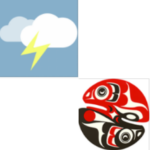 |
*New* Data Alert: IPUMS CPS
September 2023 Basic Monthly data are now available from IPUMS CPS.
(read more)
*New* Data Alert: IPUMS Time Use
The Eating and Health module is now available for the 2022 ATUS. This new module includes new questions on in-person grocery shopping and online grocery shopping, meal preparation, food quality, and exercise as well as the level of enjoyment for grocery shopping and meal preparation.
(read more)
IPUMS Webinar on Survey And Census Data For International Health Research (10/31/23)
Focusing on IPUMS Global Health and IPUMS International data, webinar presentations will cover the scope of the data, explain how data are harmonized, and demonstrate how to use IPUMS websites, create customized datafiles, and employ tools such as the online tabulator. Examples will address using the data to study the health and well-being of women, children, and the elderly. Learn more about the workshop and register here.
(read more)
NSF Environmental Synthesis Center Invites Working Group Applications (Due: 11/1/23)
|
The National Science Foundation’s newest environmental synthesis center, the Environmental Data Innovation and Inclusion Lab at UC Boulder, seeks proposals for interdisciplinary working groups blending diverse forms of environmental and social data to advance basic scientific understanding and enable informed environmental decision and policy making. A description of the ESIIL working group program can be found here, and the request for proposals can be found here.
(read more)
|
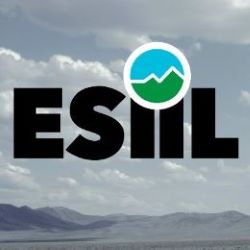 |
ORC Announces Upcoming UW Provost Bridge Funding Program (Due: 11/1/23)
|
The Office of Research Central has opened up their submission portal for The Bridge Funding Program, which provides funding to support faculty to span a temporary funding gap in critical research programs. A maximum of $50,000 may be applied for through the Provost. All funding requests must be matched 1:1 by the applicant’s college/school.
(read more)
|
 |
Russell Sage Pipeline Grants Competition for Early-Career Faculty (Deadline 11/1/23)
The Pipeline Grants Competition for early-career faculty is a collaboration between RSF and the Economic Mobility and Opportunity program at the Bill & Melinda Gates Foundation. The program seeks to promote diversity in the social sciences defined broadly, including racial and ethnic diversity, gender diversity, disciplinary diversity, institutional diversity, and geographic diversity. Only early career researchers who have not previously received a trustee or presidential research grant or fellowship from RSF are eligible to apply.
(read more)
Apply for CSSS Autumn Travel Award (Deadline 11/7/23)
|
CSSS is delighted to offer a limited number of grants for graduate and undergraduate students and postdoctoral researchers working with CSSS faculty affiliates to cover expenses associated with presenting research at conferences and attending workshops or courses. Travel must occur between January 1, 2024 and June 30, 2024 to be eligible for support. Travel outside this time period will be considered with justification. See flyer here.
(read more)
|
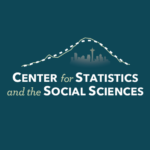 |
Global Innovation Fund Award Open (Deadline 11/8/23)
The Office of Global Affairs (OGA) is now accepting applications for the Fall 2023 Global Innovation Fund (GIF) award cycle. GIF provides seed funding for projects focused on expanding global research and learning at the UW, and we are especially interested in supporting proposals by new entrants and early-career faculty.
(read more)
NIH and NSF Partner on Call for Smart Tech for Health (Due: 11/9/23)
|
The NSF and the NIH have partnered on a call for proposals to advance research in the area of smart health and biomedical research deploying data science and AI tools. The purpose of this interagency program solicitation is to support the development of transformative high-risk, high-reward advances in computer and information science, engineering, mathematics, statistics, behavioral and/or cognitive research to address pressing questions in the biomedical and public health communities.
(read more)
|
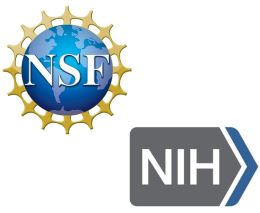 |
*New* Call for Proposals: 2024 Data Science Incubator Program (Due 11/14/23)
|
The UW eScience Institute invites short proposals (1-2 pages) for a remote one-quarter data-intensive research collaboration focusing on extracting insight from large, noisy, and/or heterogeneous datasets. The goal of the Data Science Incubator is to enable new science by bringing together data scientists and domain scientists to work on focused, intensive, collaborative projects. Their team of data scientists provides expertise in state-of-the-art technology and methods in statistics and machine learning, data manipulation and analytics at all scales, cloud and cluster computing, software design and engineering, visualization, and other topics. An information session will be held on Nov. 6th in-person and on Zoom. Learn more here.
(read more)
|
 |
Request for Applications to Study Methods Related to Mental Health and HIV (Deadline 11/19/23)
|
The University of Washington Behavioral Research Center for HIV (UW BIRCH) invites pilot study applications for the Methodology Pilot AIDS Research Center (M-PARC) Award. It’s a one-year pilot award for methods research related to mental health and HIV. The maximum amount is $25K. Proposals are relatively short (2 pages of science) and due Nov. 19. Please reference the announcement on the BIRCH website. The purpose of the UW BIRCH M-PARC awards is to advance new methods in research related to mental health and HIV.
(read more)
|
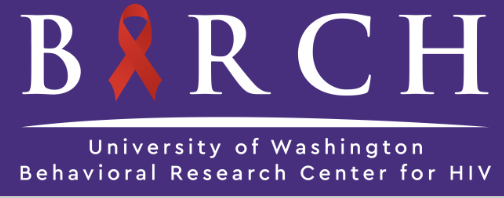 |
The National Poverty Fellows Program is Seeking Applications for Fellows (Deadline 11/27/23)
The National Poverty Fellows Program at the Institute for Research on Poverty at the University of Wisconsin-Madison seeks to build the capacity of researchers to conduct high-quality policy-relevant research on poverty and inequality in the United States and to contribute to the effective use of research and scientific knowledge in the formation of public policy.
(read more)
Several Opportunities to Study at the East-West Center (Deadlines ranging from 12/1/23-3/1/24)
The East-West Center is pleased to announce the following opportunities for study and scholarships at the Center starting in August 2024. For more than sixty years, East-West Center students have developed lifelong relationships and a powerful sense of community with others who share a commitment to the US-Indo-Pacific region.
(read more)
*New* Call for applications for EarthLab’s Innovation Grants Program (Due 1/9/24)
|
Applications are open for EarthLab’s Innovation Grants Program! EarthLab is an institute at the UW College of the Environment taking equitable action on climate change. The Innovation Grants Program invests in collaborations that span academic disciplines, engage multiple sectors and center community questions at the intersection of climate change and social justice. This program is an excellent opportunity for community-engaged research. Learn more about the grant here! An information session will also be held in-person on 11/14.
(read more)
|
 |
*New* Tier 2 grants available from the Population Health Initiative (Due 1/12/24)
|
The purpose of this tier of grants is to support faculty and PI-eligible staff to develop preliminary data or proof-of-concept needed to pursue follow-on funding to scale one’s efforts. Awards of up to $50,000 per project – or $65,000 per project for teams proposing meaningful partnerships with community-based organizations – will be available with a project period of up to 12 months. One award during the winter 2024 cycle will be reserved specifically for an internationally-focused project through our partnership with the UW Office of Global Affairs.
(read more)
|
 |
Russell Sage Grants for Dissertation Research (Deadline 2/1/24)
NIH Releases NOSI for Grants Evaluating Digital Technologies and AI Tools (Due: 3/9/24)
|
The NIH is encouraging grant applications to support the evaluation of the utility and validity of digital health and artificial intelligence (AI) tools and technologies in epidemiological, clinical, and intervention research. The intent is to support the addition of new measurement modalities to evaluate existing and recently developed but not yet validated digital health and AI tools such as sensor technologies, smartphone applications, software as a medical device (SaMD), and AI algorithms.
(read more)
|
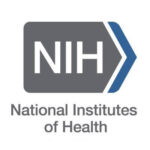 |
The Center for Statistics and the Social Sciences (CSSS) Celebrates 25 years! (5/16/23-5/17/23)
|
The Center for Statistics and the Social Sciences (CSSS) will be recognizing its 25th anniversary this academic year. In addition to highlighting special themes during the seminar series, CSSS will hold a celebratory event on campus on May 16th & 17th, 2024 that will bring alums, friends, and campus partners together with workshops, poster sessions, scientific sessions, and ample opportunities for socializing. Please note these dates in your calendar and keep your eyes posted for more details.
(read more)
|
 |
NIH Clinical Trial R01 for Biopsychosocial Factors of Social Connectedness on Health (Due 6/22/24)
|
This funding opportunity announcement invites research projects that seek to explain the underlying mechanisms, processes, and trajectories of social relationships and how these factors affect outcomes in human health, illness, recovery, and overall wellbeing. Types of projects submitted under this FOA include studies that prospectively assign human participants to conditions (i.e., experimentally manipulate independent variables) and that assess biomedical and/or behavioral outcomes in humans to understand fundamental aspects of phenomena related to social connectedness and isolation.
(read more)
|
 |
|

